Four tabletop RPG Kickstarters flying under your radar
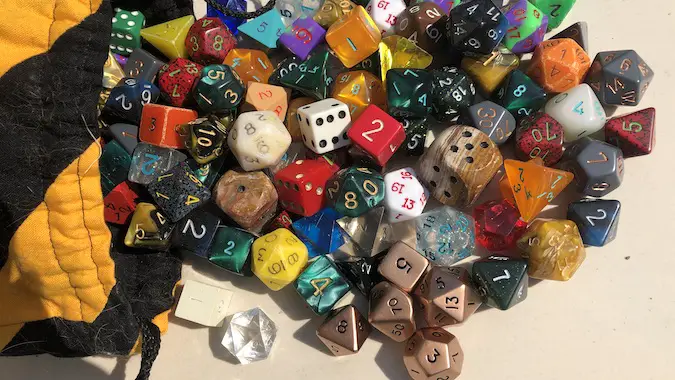
While big-name tabletop RPGs aiming to compete with Dungeons & Dragons (or at least try to fill a similar niche) garner a lot of attention — for example, Matt Colville’s “tactical heroic cinematic fantasy” MCDM RPG, which raised over $4 million dollars — there are a lot of cool and innovative games offering unique experiences that are also out there competing for your attention (and pledge of support).
So if you’re looking for games beyond the standard fare, here are just a few upcoming projects that are definitely worth your time.
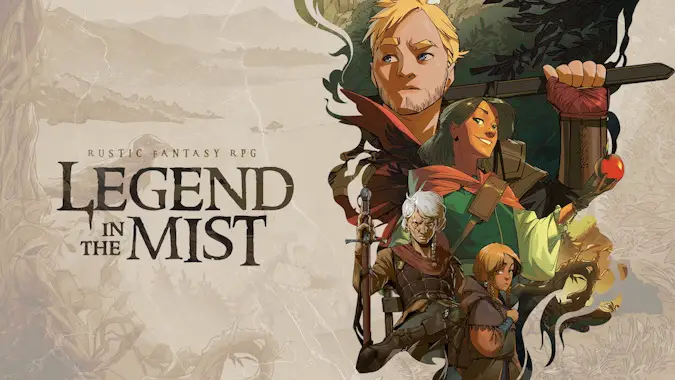
Legend in the Mist: Rustic fantasy RPG
From Amit Moshe & Son of Oak Studio — best known for cinematic urban fantasy noir RPG City of Mist — comes the Kickstarter for Legend in the Mist, a game taking City of Mist‘s modular character approach and lending it to what they’re calling “rustic fantasy.”
Remember that “old legend” feeling? The one you got when you first read, watched, or listened to a fantasy work of fiction? “Rustic Fantasy” is our name for a fantasy genre that echoes that sentiment. More often than not, these stories follow unlikely heroes, villagers with great potential – like the Hobbits from Lord of the Rings, Ashitaka from Princess Mononoke, or the boys and girls of Two Rivers from the Wheel of Time – that are thrust into a greater world on a journey to save their home. Hailing from a remote community, they hold in their hearts something pure, something the world outside needs desperately, but only through a journey full of hardships and trials will they reveal their true destiny.
Rustic heroes hailing from comfortable dales, surrounded by the dangerous and exciting world filled with monsters that aren’t just stat blocks and magic that’s forgotten, mysterious, and more than just damage calculation? Sign me up. The way City of Mist and now Legends in the Mist handle character power is interesting, too: characters are made of modular pieces representing important items, powers, or quests, called “themes,” and each of these has multiple tags that can help or hinder a roll.
As your character grows and changes, your themes change too, ensuring constant character evolution. If you can describe it, it can be part of a character in Legends in the Mist — no need for numeric balance because the important part is narrative balance, and that’s all built-in from the get-go. Who was more instrumental in the story of Lord of the Rings, Frodo or Gandalf? Arguably both, despite Gandalf being an incredibly ancient wizard — and Legends in the Mist aims to allow that kind of gameplay. As a huge fan of City of Mist, I can’t wait to see what Moshe does with this fantasy game.
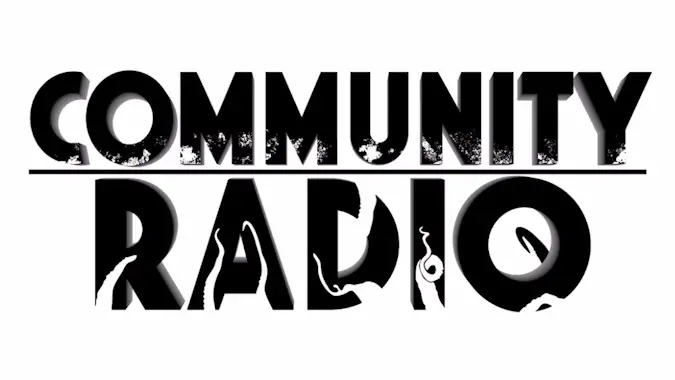
Community Radio, Second Edition: freeform RPG about a strange radio station and its stranger community
Now we turn to something a little more freeform. Explicitly inspired by podcasts like Welcome to Night Vale, the second edition of Community Radio, by Thoughtcrime Games, is an improvisational TTRPG about a weird radio station and the even weirder city it resides in. Players begin by defining what makes the community strange — think anything from Night Vale‘s surreal horror to being the college radio station of Lovecraft and company’s Miskatonic University — and then jump right in. One player is the Host, both facilitating play and playing the part of the local community radio host, while the other players play both the citizens of the community just trying to live out their lives, as well as the ominous and shadowy City Council, who pass strange and secret decrees that the Host has to work into their radio show.
The game is rules-light and improvisational, focused more on making a setting, telling stories, and light acting rather than delving dungeons and fighting the local wildlife for their treasure. This second edition adds premade stations for folks to play with to make it even easier to jump right in, as well as making the game easier to play for new folks and putting the game into print just to help it get into more hands. It promises to be approachable, weird, and funny.
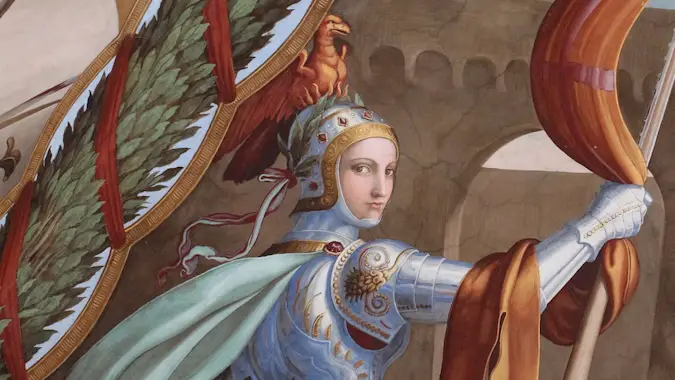
Knight, Second Edition: Arthurian romance RPG
If chivalric tales full of knights with dreams and ambitions going on legendary adventures of myth and romance (both the traditional meaning and the medieval sense) appeals to you, then you might want to check out the second edition of the simply-named Knight. You play — surprise! — knights, with their own skills, values, houses, and families; you are all part of Avalon, a mythical realm, and you serve the High Queen, a symbol of hope.
The rules are a blend of mechanical simplicity from indie darling Into the Odd and narrative-forward systems like Blades in the Dark, combined here to tell stories of knights going on quests, fighting back beasts that threaten the queendom, uncovering plots, wooing their beloved, and even dying in duels — because death isn’t necessarily the end in Knight, as you portray the next heir of your house as your knight ages, retires, or dies. It’s also, interestingly among roleplaying games, one with a defined end — your story comes to a close once you have played three generations of knights, or optionally 80 years of your tale.
Knight also comes with a mode for solo play, because sometimes you just want to daydream about some larger-than-life knights, and scheduling is the enemy of tabletop roleplay. It’s easy to play, it’s easy to run since storytelling becomes collaborative and not just something entirely on the DM’s shoulders, and it’s focused and thematic. I highly recommend checking out Knight.
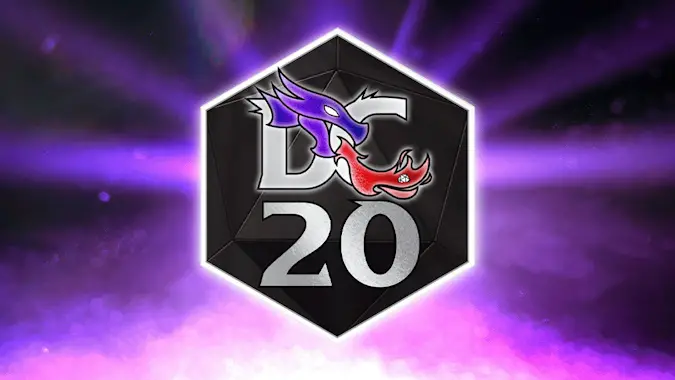
DC20: a new standard for fantasy tabletop RPGs
One of the more talked-about games in the community that likes their games explicitly Dungeons & Dragons-flavored is DC20, which has a Kickstarter coming soon. Brought to you by Alek Bjorkgren of The Dungeon Coach, DC20 is one of many games that popped up as a D&D alternative in the wake of the Open Gaming License kerfuffle. DC20 is currently in alpha, and like most successors it’s designed to feel similar to D&D in the kinds of stories it facilitates, while offering new spins on rules that have maybe grown stale or inflexible because they’re being inherited from a game from the 1970s without any further examination.
Alek covers a lot of the changes in DC20 while talking about why those changes are being made on his YouTube channel, such as what DC20 is, making multiclassing better, how DC20 aims to replace the severely worn-out Vancian casting system and let players enhance their own magic, and balancing the overuse of statistics so that some aren’t wildly better than others. Alek has also talked on other channels about, for example, their approach to ancestries: each race has lists of traits, and you choose a set number of ones you like. Making a standard half-elf? Pick a mix of human and elf traits. Customization is the name of the game.
If you’re starting to feel the itch of something that’s different from 5E but familiar at the same time with marked improvements, you could do a lot worse than looking into DC20.
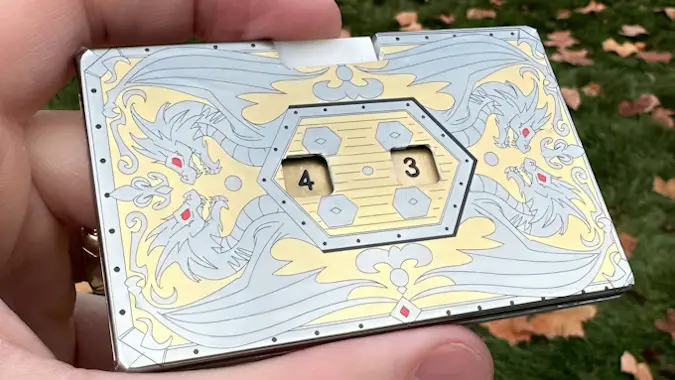
Bonus: Diceomatic Retro Dice Spinner
Okay, this one’s not a game, but if there’s one things tabletop players have a reputation for, it’s owning an unhealthy number of fancy dice. What if you could also own a cool little mechanical device that fits in your pocket, has a sweet art deco look, and doubles as a dice roller? That’s the idea behind the Diceomatic Retro Dice Spinner. It’s statistically random, it’s the size of a credit card, it needs no batteries or maintenance, and it’s guaranteed to make people ask “what is that?” when you break it at the table or just to fidget with.
Please consider supporting our Patreon!
Join the Discussion
Blizzard Watch is a safe space for all readers. By leaving comments on this site you agree to follow our commenting and community guidelines.




